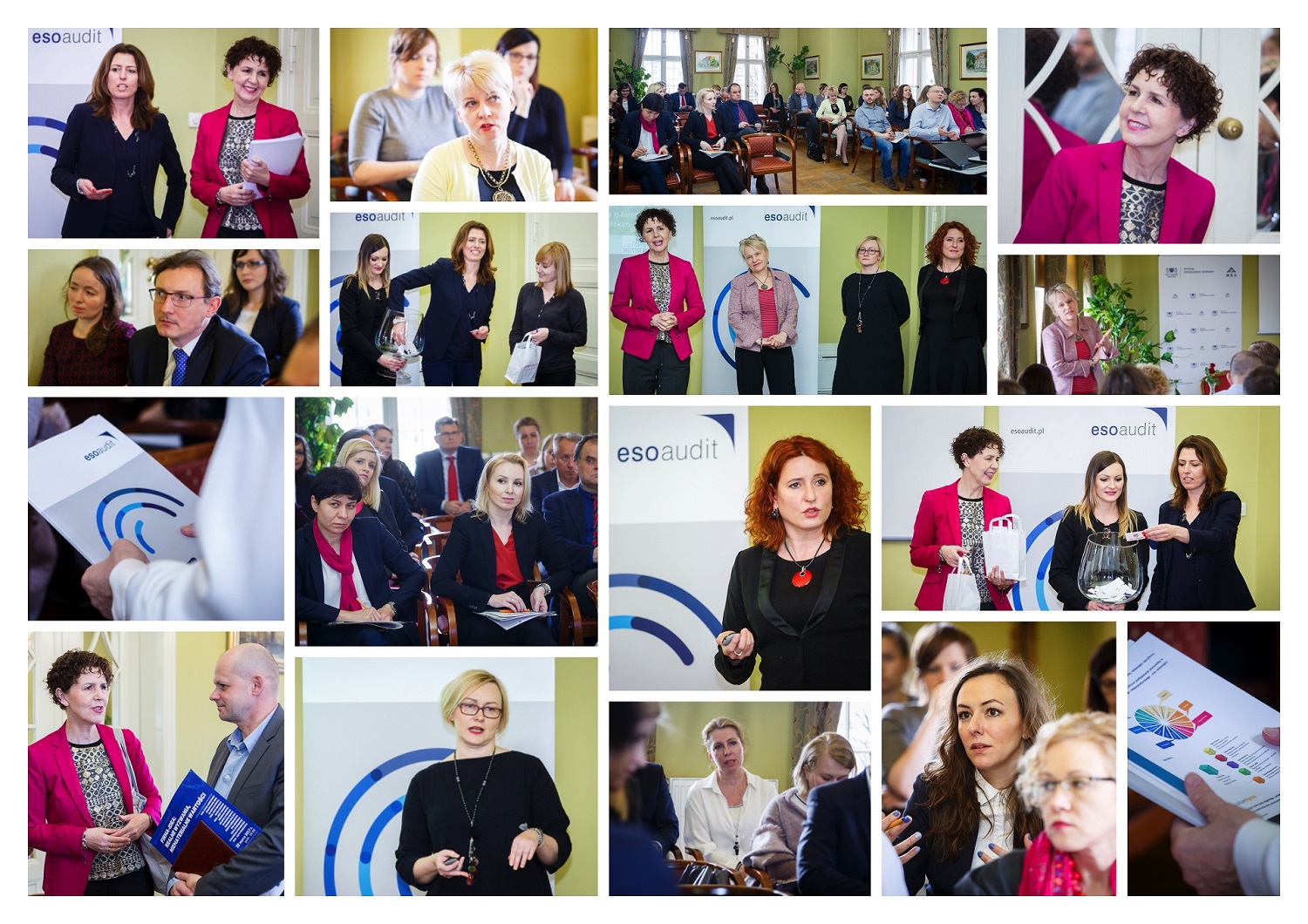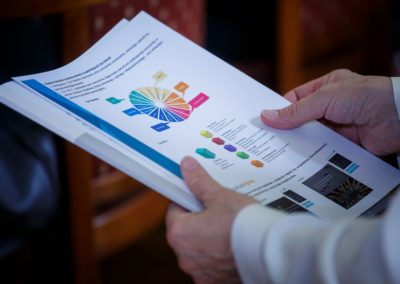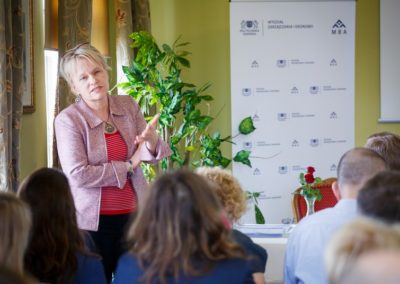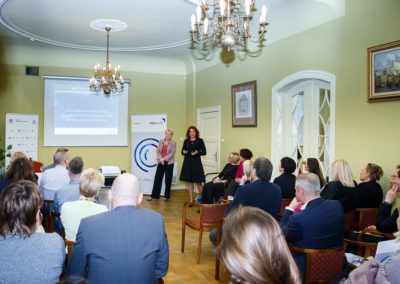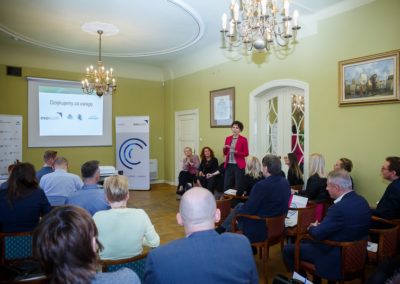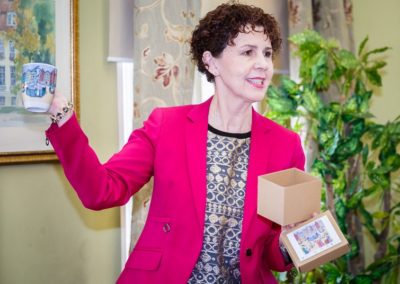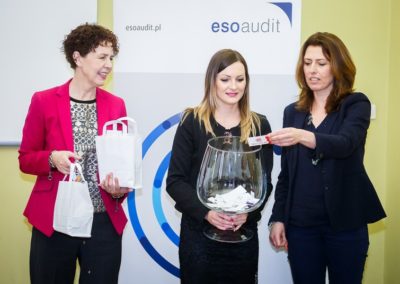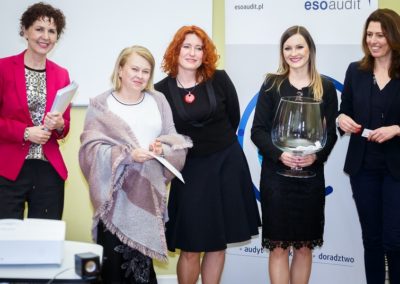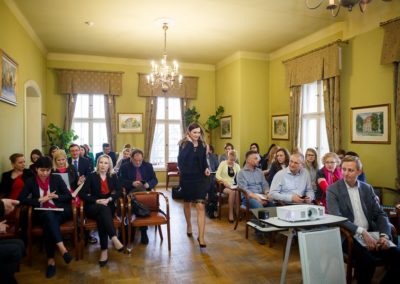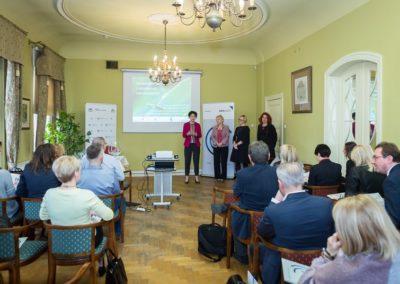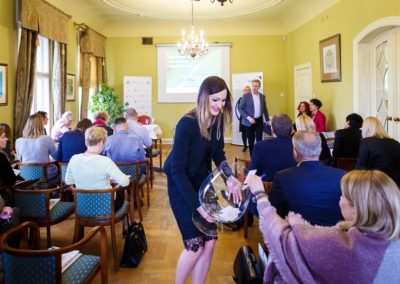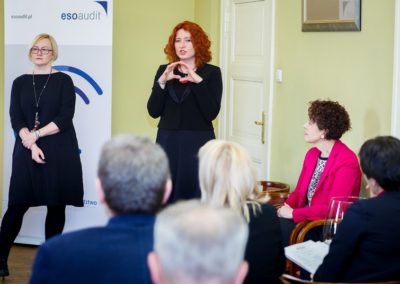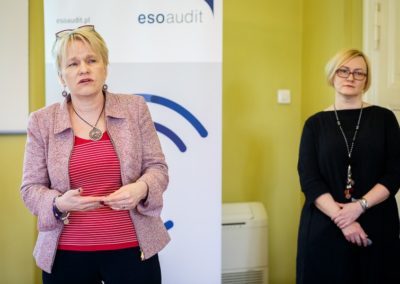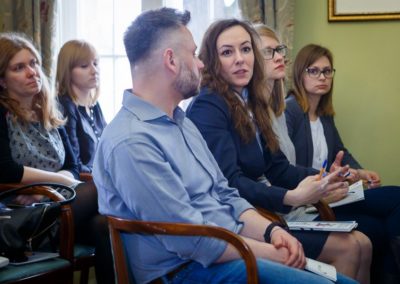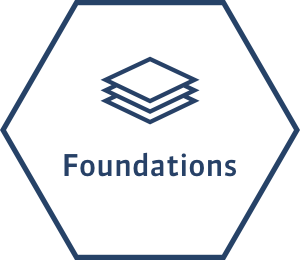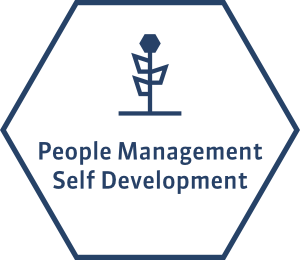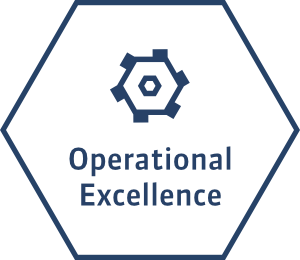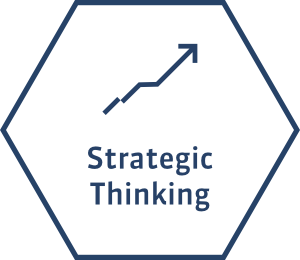The talent management conference – 21.04.17
The Instytut Miasta, together with ESO Audit, was the initiator and co-host of the talent management conference from the perspective of the different generations.
What are the talents within the company? How can we diagnose them? How is a talent-based company built? We were looking for an answer to these and other questions at the meeting, which took place on April 21 at Gdansk Business Club.
The meeting consisted of two parts: a lecture incorporating speakers describing and demonstrating online tools for diagnosing talents and identifying them in an organization. Second was a discussion in which guests – business representatives – asked questions, dispelled doubts and shared their own observations and experiences related to acquiring and working with talents in their organizations.
The conference was designed to inspire participants to reflect on the benefits a company can gain from the ability to accurately diagnose the potential of its employees through specific talents, and on how to build a talented organization.
Participants in the meeting were welcomed by Dr. Barbara Stepnowska, Gdansk University of Technology MBA Programme Director, and Ewa Sowińska, Partner in the ESO Audit, who introduced guests to the conference.
The lecture began with Ina Markiewicz, a consultant from the Instytut Miasta, who opened the event by reminding delegates of the research on the most common reasons for employees leaving their companies. This is especially important because more and more people are represented by the Y generation: young, educated and ambitious. According to research, these employees are most often neglected, because of their lack of expectations when the company promised them much more than was actually offered (higher position, faster promotion). The second reason is the mismatch of qualities and skills required for a position when the talents and skills of the employee are ignored and unused. The third reason is lack of feedback. Managers instead believe that the most common reason for a worker leaving is financial.
Consultancy and training company the Instytut Miasta presented an online programme “Your Development Plan”, using two tools for researching the potential of employees to make the most of their skills and abilities while encouraging them to connect with the company. She also presented a tool to develop both managerial and social competencies combined with the English language, “Culture4growing”.
The first tool, described by Ina Markiewicz, shows what kind of potential we have to deal with a worker’s test for self-diagnosis, performed by an employee himself, indicating his specific abilities. The test can be done online. It is based on Martin Seligman’s thesis, emphasizing that certain abilities are understood and appreciated in many cultures as valuable skills, useful both in the field of work and in everyday life. Research by the Gallup Institute shows that people fully engaged with their talents bring an additional value of 23.5% to organizations. It is therefore essential to increase the involvement of employees in knowing and using their talents. The self-diagnosis tool shows what talents an employee has and gives tips on what he can do to develop it.
The second tool was presented by Dr. Aneta Chybicka, Director of the Instytut Miasta. This is a leader-tested HiPo test that diagnoses specific employee predispositions for five factors: Results, Change, Mental, Human and Intercultural, and Learning Agility. These five factors are considered key to achieving professional success. The test can be completed online. Supervisor’s task is to indicate how the recorded behaviour describes the person being examined. There are tips and hints in the test to help supervisor better understand the situation. The test results indicate high potential people, crucial for human capital development in a company.
The next part concerned the “Culture4grow” programme. It develops managerial competences, communication and negotiation skills. The advantage of this programme is the simultaneous learning of these competences and the English language. The learner prepares for the lesson by looking at text or video, and then answers questions about how he or she has mastered the knowledge of the topic.
In the last part a discussion took place among participants, with questions about how to retain talents in an organization, particularly knowledge workers from generation Y. Participants were also interested in how to diagnose and eliminate the threat of selecting high potential persons who will not be sufficiently cared for by subordinates and directed accordingly. Another interesting point was how to use the tools presented to distinguish high potential people from high performance people. The Director of the Instytut Miasta, Dr. Aneta Chybicka, Ina Markiewicz, a consultant from the company, and Ewa Sowińska, ESO Audit Partner, answered questions in the context of the development of the capital of companies and summarized the meeting.
Event organizers: City Institute, ESO Audit, and Gdansk Business Club.
The patronage of the conference was taken by Dr. Barbara Stepnowska, Programme Director of the MBA Programme at the Faculty of Management and Economics at Gdansk University of Technology
Special thanks go to Dorota Sobieniecka-Kanska, Director of Gdansk Business Club, who made a room and equipment available at Villa Uphagen to Anna Rezulak, who provided a photo service.


